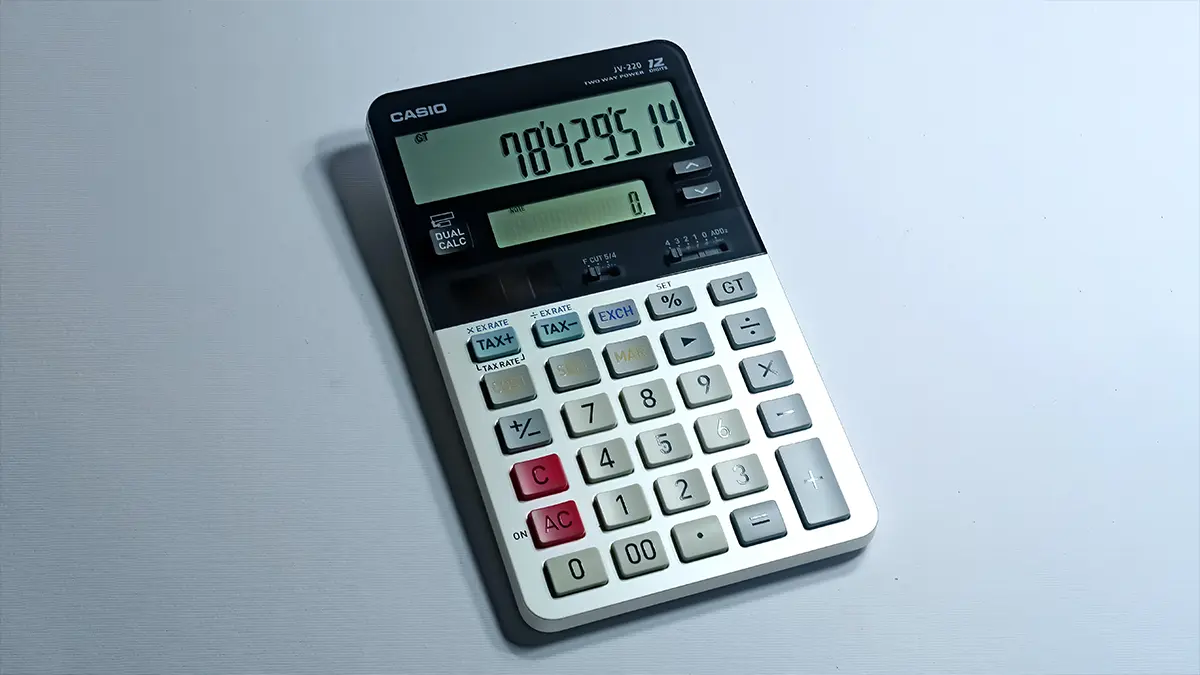What is an index fund investment return calculator?
The calculator estimates your total investment return, with any investment amount, over any time period. It shows you the full investment value, as well as your total contributions and the total interest earned.
Initial investment + Your contributions + Interest earned = Full investment value
How does the index fund calculator work?
It assumes an initial starting investment as well as regular top-ups.
Most people top up their investment once a month, coinciding with their paycheck. It’s a good idea to ‘invest in yourself’ first. If nothing else, investing the money as soon as you are paid will stop you from spending the money!
You can model investing daily all the way up to annually. You can also model no regular investments at all; perhaps just a starting investment and leaving it to grow for decades.
The expected rate of return is the amount of interest you can expect each year. That interest can be added monthly, annually, or whenever you wish – this is the compound frequency.
The calculator will multiply the return by the ‘Years of Growth’ value. The longer the years of growth, the more time compounding has to take effect.
Why is it important to calculate your approximate index fund returns?
There are two reasons you should calculate how much you can earn from passively investing in index funds.
Firstly, for a beginner investor, it’s a real eye-opener. The power of compound investing is laid bare.
Investing $1000 a month for 30 years, at a modest 5% interest rate, can earn you nearly half a million dollars in interest alone.
For a more optimistic 10% annual return, you can earn over $1.9 million in interest from just $360,000 total investment. That leaves you with a cool $2.3m after 30 years.
The calculator is a great motivator. It shows you what is possible if you can stick to a consistent investment strategy and let compound interest work its magic.
Secondly, you should calculate your returns to plan for the future. If your goal is early retirement, for example, you want to know a) when you can retire and b) how much money you will have each month to live off for the rest of your life.
Without modelling your investment returns and defining your goal, two things can happen:
- You undershoot your target, meaning you must work longer or live on much less than anticipated. Or:
- You overshoot, meaning you waste precious years of your life earning money in a job you perhaps don’t enjoy, instead of doing the things you love.
If you do not define your goal, you will never reach it – because it doesn’t exist!
What annual return percentage should I use to calculate index fund returns?
The market has returned about 12% from 1975-2015. This is a great return over 40 years, but no guarantee of future success.
We default to a modest 5% return.
There is no way to know what will happen over the next 40 years. It’s a good idea to model both high and low returns so that you can plan accordingly.
Taking the ‘early retirement’ goal as an example, you can use the 4% rule to work backwards from the target investment pot required.
Depending on whether your returns hit 5% or 12%, you may need to work for longer or reduce your annual expenditure in retirement.
How many years of growth should I use for the calculator?
The absolute minimum timeframe for investing passively into index funds would be 5 years. The markets are very turbulent and investing for any shorter period might lead to poor results.
The time period depends on the age you start investing, and your goals. If you are starting your investment journey at 20 and the goal is to retire by 50, 30 years might be a good starting point. But you need not ever stop investing!
The billionaire investor Warren Buffet made 99.7% of his wealth after the age of 52. It’s his longevity that has created his billions.
Our advice: set your time horizon for as long as possible.
What are the limitations in calculating index fund returns?
As above, if you are looking for a short-term investment, this calculator (and passive investing in general) is not for you. In a recession, you could easily end up with less money than you started.
Even over a much longer period, whichever rate of return you choose is not guaranteed. If you choose an expensive, non-diversified fund that underperforms, you can always lose money.
The calculator does not account for inflation or fees.
Inflation reduces the buying power of your money over time. So remember, in 30 years that $1,000,000 won’t buy nearly as much as it can today.
Fees are a bigger enemy in the investing world. Luckily, with passive investing you can get extremely affordable 0.10% expense ratio (or even zero fee Fidelity) funds. Keep as much of your investment return as you can!
Where can I learn more about passive index fund investing?
We have a great starter post for beginners who want to get started in passive investing here.






